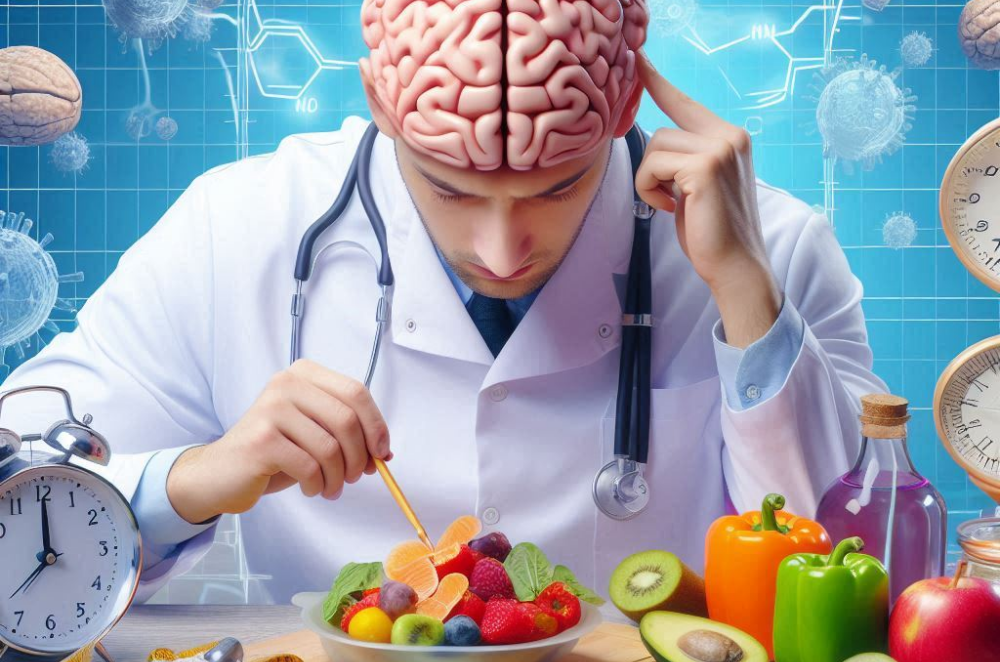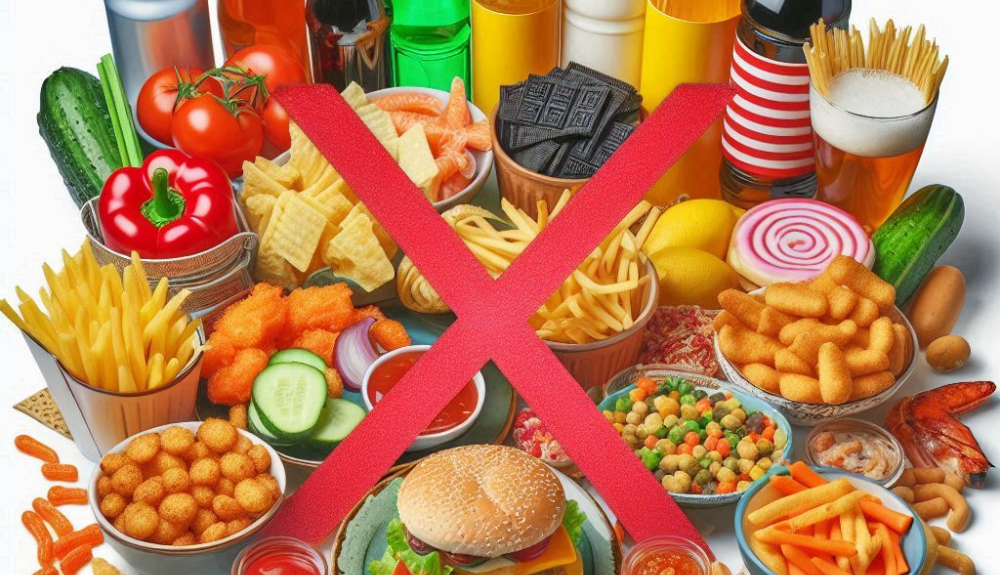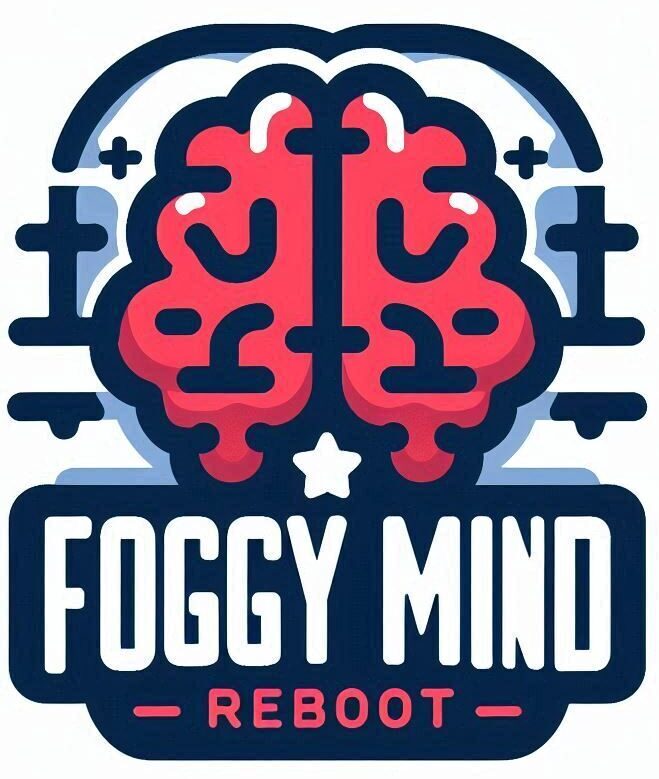
Best Diet Plans to Combat Brain Fog
Brain fog isn’t just an abstract concept; it’s a real issue that can significantly affect your day-to-day life. Ever felt like you’re wading through mental molasses, struggling to remember simple things or stay focused? That’s brain fog. It’s more common than you’d think and can seriously reduce your productivity and overall mental well-being.
What Causes Brain Fog?
Brain fog can stem from a mix of factors like stress, lack of sleep, dehydration, and poor nutrition. Think of your brain as a finely tuned machine. If you’re constantly fueling it with junk, it’s going to sputter and slow down. Stress can also play a huge role—your brain can only handle so much tension before it starts to fizzle out. Lack of sleep is another significant contributor, as your brain needs time to reset and recover.
Why Diet Matters for Brain Fog
Diet plays a huge role in brain health. Imagine your food as a software update for your brain’s operating system. Load up on healthy, nutrient-rich foods, and you’ll see better cognitive performance. Conversely, filling up on processed foods and sugars will lead to mental crashes and sluggishness.
Understanding Brain Fog’s Impact on Your Life
Living with brain fog doesn’t just hinder your productivity—it can also affect your mood, decision-making, and overall mental health. Imagine trying to tackle daily tasks when making a simple decision feels overwhelming. A clear mind helps you be more efficient, happier, and more present in your day-to-day life. So, how do we tackle brain fog? Let’s start with what’s on your plate.
Top Foods to Eat to Get Rid of Brain Fog
The right diet can significantly improve your mental clarity and reduce brain fog. Here are some top foods scientifically proven to help keep your brain in tip-top shape:
1. Leafy Greens
Leafy greens like kale, spinach, and Swiss chard are rich in vitamins like K and E, which help maintain cognitive function. These powerhouses are loaded with antioxidants that fight inflammation and protect brain cells from damage. Studies have shown that regular consumption of leafy greens may slow cognitive decline as you age.
2. Fatty Fish
Fatty fish such as salmon, mackerel, and trout are packed with omega-3 fatty acids. Omega-3s are essential fats that are critical for brain health. Research indicates that these fatty acids can improve memory and overall brain function, reducing symptoms of brain fog. Think of omega-3s as brain lube, helping your neurons fire more efficiently.
3. Nuts and Seeds
Nuts (especially almonds and walnuts) and seeds (like flaxseeds and chia seeds) are excellent sources of vitamin E, a nutrient that can help slow cognitive decline. The healthy fats in nuts also support brain function by promoting healthy cell membranes and reducing inflammation.
4. Berries
Berries, especially blueberries, are high in antioxidants, which protect your brain from oxidative stress and inflammation—two big culprits of brain fog. Studies suggest that the antioxidants in blueberries may delay brain aging and improve memory.
5. Whole Grains
Whole grains like oatmeal, whole wheat bread, and brown rice provide a steady release of glucose, your brain’s primary source of fuel. By avoiding spikes and crashes in blood sugar levels, whole grains offer consistent energy, helping to keep brain fog at bay.
Foods to Avoid

Just as important as what you should eat is what you should avoid. Certain foods can contribute to brain fog and negatively affect mental clarity.
1. Processed Foods
Processed foods, especially those high in sugar and unhealthy fats, can cause inflammation, which impacts brain function. Cutting out sugary snacks, fast food, and overly processed meals can lead to significant improvements in cognitive performance.
2. Sugary Drinks
Sugary drinks, including sodas and energy drinks, cause rapid spikes and crashes in blood sugar levels, which can leave you feeling mentally exhausted. Stick to water, herbal teas, or drinks with electrolytes to keep your hydration and energy levels balanced.
Effective Strategies and Fastest Ways to Cure Brain Fog
In addition to eating brain-healthy foods, there are several lifestyle changes you can make to reduce brain fog quickly:
1. Stay Hydrated
Dehydration is a common, but often overlooked, cause of brain fog. Drinking enough water daily can make a significant difference in your mental clarity. Herbal teas and drinks with electrolytes can also help keep your hydration levels optimal.
2. Get Quality Sleep
Sleep is crucial for brain health. Aim for 7-9 hours of quality sleep per night. During sleep, your brain resets and clears out toxins, making you feel more refreshed and mentally sharp the next day. Research shows that poor sleep is one of the leading contributors to cognitive dysfunction and brain fog.
3. Manage Stress
Chronic stress can significantly impact your brain function, contributing to foggy thinking and mental fatigue. Stress-relieving activities like meditation, deep breathing, or even a daily walk can help clear out mental cobwebs and keep your brain sharp. According to Harvard Health, regular mindfulness practices can improve mental clarity and reduce anxiety.
4. Exercise Regularly
Physical activity boosts blood flow to the brain, delivering oxygen and essential nutrients that enhance cognitive function. Regular exercise is not just great for physical health but also a powerful way to combat brain fog and improve focus.
5. Consider Supplements
If you’re not getting enough brain-boosting nutrients from your diet alone, supplements can provide an extra push. Some of the most effective supplements for brain fog include:
- Omega-3 Fish Oil: Helps with cognitive function and memory.
- B-complex Vitamins: Important for energy production and brain health.
- Ginkgo Biloba: May improve blood circulation in the brain, potentially enhancing memory and focus. Always consult a healthcare provider before starting new supplements.
The Role of Protein in Combating Brain Fog
Protein isn’t just for bodybuilders—it’s essential for brain health, too. Protein helps produce neurotransmitters, the chemicals that allow brain cells to communicate. Without enough protein, your brain’s messaging system can falter, leading to—you guessed it—brain fog.
Best Protein Sources for Brain Health:
- Lean Meats: Chicken, turkey, and lean cuts of beef are excellent sources of high-quality protein.
- Plant-Based Proteins: If you prefer plant-based options, beans, lentils, tofu, and tempeh are fantastic alternatives.
Aim to include a source of protein in every meal. For breakfast, try eggs or a protein-packed smoothie. For lunch and dinner, incorporate options like grilled chicken, a hearty bean salad, or a protein-rich grain bowl. High-protein snacks, such as yogurt, nuts, or hummus, can also help maintain steady energy levels throughout the day.
Conclusion
Brain fog doesn’t have to control your life. By focusing on a brain-healthy diet rich in leafy greens, fatty fish, berries, whole grains, and protein, you can improve mental clarity and reduce symptoms of brain fog. Pair these dietary changes with regular sleep, hydration, stress management, and exercise, and you’ll be on your way to a sharper, clearer mind.
Click here for “Complete Support For Healthy Memory, Concentration And Mental Acuity”
